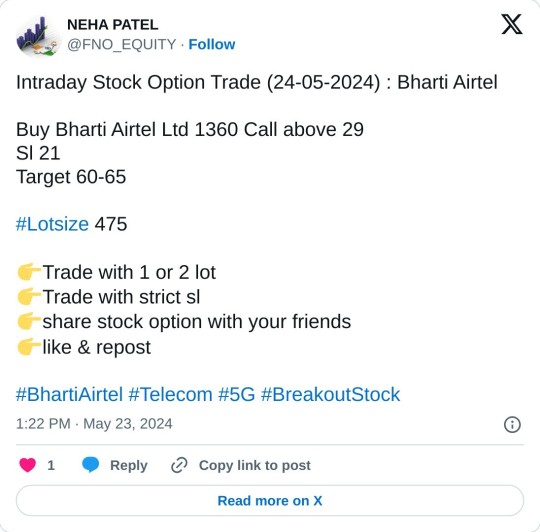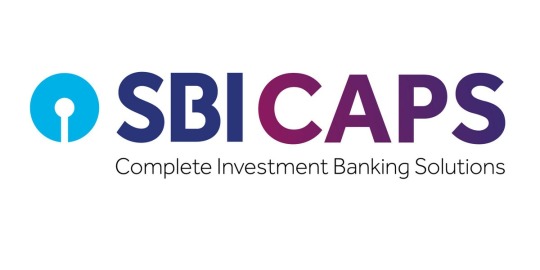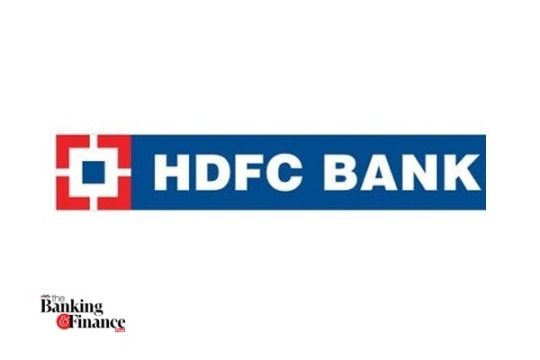#investment banks of India
Text
Strategies for Maximizing Returns with Tax-Efficient Investments

When it comes to building wealth, investing your hard-earned money is a key player in the game. But here's the twist: it's not just about how much you invest; it's also about how you invest. One of the often overlooked aspects of investing is the tax implications. Smart investors know that managing taxes on investments can make a significant difference in the long run. So, let's dive into the world of tax-efficient investment strategies without any fancy introductions.
Understanding the Basics: Taxes and Investments
Before we jump into the strategies, let's clarify why taxes matter in the investment landscape. When you buy and sell investments, you can incur taxes in different ways. Two common types are capital gains tax and dividend tax. Capital gains tax applies when you sell an investment for a profit, and dividend tax is applicable to the income you receive from your investments. Understanding these is the first step in crafting a tax-efficient strategy.
Also Read: The Unseen Financial Side of Homeownership
1. Tax-Advantaged Accounts
The most fundamental strategy is to make use of tax-advantaged accounts, like 401(k)s or IRAs. These accounts offer significant tax benefits. In a 401(k), for instance, your contributions are made with pre-tax dollars, reducing your taxable income. Plus, your earnings grow tax-free until you withdraw them in retirement. It's like a hidden treasure chest for your golden years.
2. Hold Investments for the Long Term
Investors often get tempted by short-term gains. However, holding investments for the long term can be incredibly tax-efficient. When you hold an investment for over a year, you become eligible for long-term capital gains tax rates, which are typically lower than short-term rates. So, patience can pay off!
3. Tax-Loss Harvesting
This strategy involves selling investments that have incurred losses to offset gains in other investments. By doing this, you can reduce your overall tax liability. Keep in mind that there are rules and limits to tax-loss harvesting, so it's advisable to consult a tax professional.
4. Invest in Tax-Efficient Funds
Certain investment funds are designed to be tax-efficient. Index funds and ETFs (Exchange-Traded Funds) are known for their tax-friendly nature. These funds typically have lower turnover, which means fewer capital gains distributions, resulting in lower tax consequences for you.
5. Be Mindful of Asset Location
The location of your investments matters when it comes to taxes. Tax-inefficient investments, such as bonds, can be placed in tax-advantaged accounts, while tax-efficient assets, like stocks, can be held in taxable accounts. This strategic placement can help minimize your overall tax burden.
Also Read: Unveiling Why Entrepreneurs Prefer MSME Loans
Conclusion
There you have it, a brief glimpse into the world of tax-efficient investment strategies. Remember, the goal isn't to avoid taxes entirely, which can lead to legal trouble, but rather to minimize your tax liability while making the most of your investments. These strategies are like the secret sauce that can enhance your wealth-building journey. So, before you hit the buy or sell button on your investments, take a moment to consider the tax implications. Your financial future will thank you for it.
0 notes
Text
Take control of your finances with the best money management tips. Learn how to budget, save and invest wisely for a secure personal financial future.
#finance#accounting#business#ecommerce#economy#entrepreneur#investing#final fantasy vii#founder#personal loans#personal post#banking#financial#financial planning#india#indian#usa#commercial#usa news#uk#canada
3 notes
·
View notes
Text
Foreign Company Registration in India | Foreign Company Formation in India |Foreign Company Incorporation in India .
We assist NRI's in Foreign Company registration in India.
It helps to people for their Foreign Company formation in India ,registration of foreign companies.

#Foreign Direct Investment (FDI)#Reserve Bank of India (RBI)#Foreign Branch Office Registration#Board of Investment (BOI)
3 notes
·
View notes
Photo

Credit Money is India's best leading portal for Financial Products. We provide customized loan, Insurance, Investment & Banking Services.
Credit Money Financial Services, with an immensely rich network of association with all major Indian Private sector Banks, NBFCs and other Financial Institutions are here to serve you the best. Capital low or high, Credit Money provide all types of Loan, Insurance, Investment, Banking, Credit Score Upgrade, Taxation & Registration, API Services and more than 300+ services across all over India. Lead by professionals who have more than 15 years of experience in this market.
Credit Money have worked for almost more than 10000 clients across India in the last 3 years. With the help of of dynamic yet flexible team we are able to please our customers at best. Customers don’t have to worry about their loans and other services we help them at every step. Customers who engage with us doesn’t have to worry about their loan documentations, etc. We guide them by showcasing best options available with best beneficial deals.
We have worked across India with many different target segment & know their expectations. With Credit Money you can enjoy non-hectic Financial services. Our services doesn’t end with loan sanctions end procedure, we are most delighted to help our customer till the end loan period and even after. With 24*7/365 customer care service, Credit Money is always available to our customer for any necessary information.
We believe in serving our customers what is best & beneficial for them. With the available resource, we ensures safe & suitable loans for our consumers.
Know More Visit - https://creditmoney.co.in/
Mail us - [email protected]
#creditmoney#creditmoney11#finance#financial#service#Taxiservice#Banking#loans#capital#india#cibil#company#Insurance#investment#personalloan#homeloan#money#mortgage#digitalloan
3 notes
·
View notes
Text
AEPS Services with MOS World
What is AEPS?
AEPS (Aadhaar Enabled Payment System) is a secure and straightforward way to carry out banking transactions using your Aadhaar number and biometric authentication. This system makes banking accessible, even in remote areas, without needing a bank card or smartphone.
AEPS Services Offered by MOS World
Cash Withdrawal Withdraw cash easily using your Aadhaar number and biometric verification at any of our service points.
Balance Inquiry Check your bank account balance quickly and securely through AEPS.
Fund Transfer Transfer money between Aadhaar-linked bank accounts without the hassle of paperwork.
Mini Statement Get a quick overview of your recent transactions to keep track of your spending and account activity.
Aadhaar to Aadhaar Fund Transfer Send money directly from one Aadhaar-linked bank account to another, making transactions simpler and faster.
Why Choose MOS World for AEPS Services?
Convenience: Perform essential banking transactions without needing a debit card or mobile phone.
Security: Biometric authentication ensures your transactions are safe and secure.
Accessibility: AEPS services are available even in rural and remote areas, bringing banking closer to everyone.
Support: Our customer service team is available to help you with any questions or issues related to AEPS.
How to Use AEPS Services
Visit a Service Point: Go to any MOS World AEPS service point.
Provide Your Aadhaar Number: Share your Aadhaar number with the service provider.
Authenticate: Use your fingerprint or iris scan for biometric authentication.
Complete Your Transaction: Carry out the desired transaction, whether it’s a withdrawal, balance inquiry, or fund transfer.
Experience Hassle-Free Banking with MOS World
With MOS World AEPS services, banking is easier, safer, and more accessible than ever before. Whether you need to withdraw cash, check your balance, or transfer funds, we make it simple and secure. Visit us today to take advantage of our AEPS services and make your banking experience smooth and convenient.
#business opportunity#low investment business ideas#small business#business#direct money transfer#low investment franchise business in india#banking#business growth#marketing#services
0 notes
Text
The Impact Of Inflation on Investment Portfolios
In India, investment banks are uniquely positioned to lead the charge in sustainable investing. With the rapid growth of the equity capital markets and increasing investor interest in ESG considerations, investment banks have an opportunity to leverage their expertise and networks to promote sustainable finance initiatives across the country. By collaborating with stakeholders and driving innovation in financial products and services, investment banks in India can play a pivotal role in advancing the sustainability agenda and fostering inclusive economic growth.

The Impact of Inflation on Investment Portfolios
Inflation, the gradual increase in prices and the corresponding decrease in purchasing power, is a critical economic phenomenon that affects both consumers and investors. For investment portfolios, understanding and managing the impact of inflation is essential to preserve and grow wealth over time. This article delves into how inflation affects different asset classes, strategies for inflation-proofing investments, and historical case studies of inflation periods.
Understanding Inflation
Inflation is typically measured by the Consumer Price Index (CPI) or the Producer Price Index (PPI). The CPI tracks the cost of a basket of consumer goods and services, while the PPI measures the average changes in selling prices received by domestic producers. Central banks, like the Federal Reserve in the United States, aim to control inflation through monetary policy to maintain price stability and foster economic growth.
The Impact of Inflation on Asset Classes
Different asset classes respond to inflation in varying ways. Here’s a breakdown of how inflation affects major asset classes:
1. Stocks
Stocks have historically provided a hedge against inflation over the long term. Companies can often pass higher costs onto consumers through increased prices, maintaining their profit margins. However, the relationship between stocks and inflation is complex. In periods of moderate inflation, stocks generally perform well. In contrast, during periods of hyperinflation or stagflation (stagnant growth coupled with high inflation), stock market performance can suffer due to declining corporate profits and reduced consumer spending.
2. Bonds
Bonds are typically more vulnerable to inflation. Since they pay a fixed interest rate, rising inflation erodes the purchasing power of those interest payments. Long-term bonds are particularly susceptible because their fixed interest rates cannot adjust to inflation over time. Inflation-indexed bonds, such as Treasury Inflation-Protected Securities (TIPS) in the United States, offer some protection as their principal value adjusts with inflation.
3. Real Estate
Real estate often serves as a good hedge against inflation. Property values and rental income tend to rise with inflation, preserving the real value of the investment. However, the relationship can be influenced by factors like interest rates and economic conditions. For instance, if inflation leads to higher interest rates, borrowing costs for real estate purchases increase, which can dampen demand and prices.
4. Commodities
Commodities, including precious metals like gold and silver, generally perform well during inflationary periods. As tangible assets, their intrinsic value tends to rise with inflation. Gold, in particular, is often seen as a safe haven during times of economic uncertainty and high inflation. Other commodities, such as oil and agricultural products, also benefit from inflation as their prices typically increase in response to higher demand and production costs.
5. Cash and Cash Equivalents
Cash and cash equivalents, such as savings accounts and money market funds, lose value in real terms during inflationary periods. The fixed interest rates offered by these instruments often do not keep pace with inflation, leading to a decrease in purchasing power. Maintaining a significant portion of a portfolio in cash during high inflation periods can result in substantial real losses.
Also Read: A Comprehensive Guide to Rapid Student Loan Repayment
Strategies for Inflation-Proofing Investments
To mitigate the adverse effects of inflation on investment portfolios, investors can adopt several strategies:
1. Diversification
Diversifying across various asset classes can help protect a portfolio from inflation. A mix of stocks, real estate, commodities, and inflation-protected securities can provide a buffer against the different ways inflation impacts these assets. Diversification reduces reliance on any single asset class and spreads risk.
2. Investing in Inflation-Protected Securities
Securities such as TIPS in the United States are specifically designed to protect against inflation. The principal value of TIPS increases with inflation, as measured by the CPI, ensuring that the real value of the investment is preserved. These securities offer a reliable hedge for conservative investors seeking to safeguard their portfolios from inflation.
3. Real Assets
Investing in real assets, such as real estate, infrastructure, and natural resources, can provide a hedge against inflation. These assets often have intrinsic value that appreciates with inflation. For example, real estate properties can generate rental income that increases with inflation, while infrastructure investments benefit from long-term contracts often linked to inflation rates.
4. Commodities and Precious Metals
Allocating a portion of a portfolio to commodities and precious metals can offer protection against inflation. Gold, in particular, has a long history of serving as a store of value during inflationary periods. Commodity-focused mutual funds and exchange-traded funds (ETFs) provide an accessible way to gain exposure to these assets.
5. Equities with Pricing Power
Investing in companies with strong pricing power—those able to raise prices without significantly reducing demand for their products—can be an effective strategy. Sectors such as consumer staples, healthcare, and utilities often contain companies with this ability. These firms can maintain profit margins even when input costs rise, providing a degree of inflation protection.
6. Foreign Investments
Inflationary pressures are not uniform across all countries. By diversifying into foreign markets, investors can reduce their exposure to domestic inflation. Emerging markets, in particular, may offer higher growth potential and different inflation dynamics compared to developed markets.
Also Read: The Role of Investment Banks in Initial Public Offerings (IPOs)
Historical Case Studies
Examining historical periods of inflation provides valuable insights into how different investment strategies and asset classes perform under such conditions. Here are a few notable examples:
1. The 1970s Oil Crisis and Stagflation
The 1970s were marked by high inflation and economic stagnation, a period known as stagflation. The oil embargo of 1973 led to skyrocketing energy prices, contributing to inflation. During this period, stocks and bonds performed poorly, while real assets like real estate and commodities, particularly gold, delivered strong returns. Investors who held significant positions in these inflation-resistant assets fared better than those with traditional stock and bond portfolios.
2. The Post-2008 Financial Crisis
Following the 2008 financial crisis, central banks around the world implemented unprecedented monetary easing policies, leading to fears of future inflation. Although inflation remained subdued for a prolonged period, assets such as gold and real estate saw significant price appreciation as investors sought to hedge against potential inflation. The real estate market recovery, in particular, demonstrated the asset class’s resilience to economic shocks and inflation fears.
3. COVID-19 Pandemic and Supply Chain Disruptions
The COVID-19 pandemic triggered significant supply chain disruptions and massive fiscal and monetary stimulus measures, raising concerns about inflation. By 2021, inflation began to rise as economies reopened and demand surged. Commodities like lumber, copper, and oil experienced price spikes, reflecting supply constraints and increased demand. Equity markets showed mixed responses, with sectors like technology performing well due to digital transformation trends, while traditional sectors faced more challenges. Investors with diversified portfolios, including exposure to real assets and inflation-protected securities, were better positioned to navigate the volatile environment.
The Role of Merchant Bankers and Corporate Advisory in India
A merchant banker in India plays a crucial role in advising companies on capital raising, mergers and acquisitions, and restructuring, helping businesses navigate inflationary periods. Their expertise in financial markets and corporate finance can aid companies in securing the necessary funding and strategic direction to mitigate the impacts of inflation. Similarly, corporate advisory in India provides valuable insights and strategies to businesses looking to optimise their operations and investments in an inflationary environment. These services can include risk management, financial planning, and investment strategies tailored to the specific needs of companies facing inflationary pressures.
Also Read: Unlocking Opportunities: A Comprehensive Review of SBI CAPS and Its Offerings
Conclusion
Inflation poses a complex challenge for investors, affecting different asset classes in varied ways. Understanding the impact of inflation on investment portfolios is crucial for preserving and growing wealth. By diversifying investments, incorporating inflation-protected securities, and allocating to real assets and commodities, investors can build resilient portfolios capable of weathering inflationary pressures. Historical case studies underscore the importance of strategic asset allocation and the benefits of including assets that perform well during inflationary periods. As the global economy continues to evolve, staying informed and proactive about inflation risk remains a fundamental aspect of successful long-term investing.
0 notes
Text
A Sneak-Peek into The Rise of Investment Banking Firms in India
Characterised by their ability to profit from both rising and falling markets, long short funds in India have gained prominence in recent years as investors look for ways to mitigate risk while capitalising on market trends. These funds employ a strategy of simultaneously buying undervalued assets (going long) and selling overvalued assets (going short), thereby aiming to generate returns regardless of market direction.
One of the primary advantages of long-short funds is their ability to provide diversification and downside protection in volatile market conditions. By maintaining a balanced portfolio of long and short positions, these funds seek to hedge against market risks while capitalising on opportunities for alpha generation. This flexibility makes them an attractive option for investors looking to navigate uncertain market environments with confidence.
In India, the popularity of long-short funds has been on the rise, driven by increasing investor demand for alternative investment strategies. With a growing number of fund managers specializing in long-short strategies, investors have access to a diverse range of options tailored to their risk tolerance and investment objectives. Whether it is equity long-short funds, credit long-short funds, or multi-strategy funds, investors can find a solution that aligns with their portfolio needs.
On the other side of the coin, investment banking firms in India play a pivotal role in facilitating corporate transactions and capital-raising activities. From mergers and acquisitions to initial public offerings and debt issuances, these firms provide a wide range of advisory services to corporate clients, helping them navigate complex financial transactions with confidence. One of the key strengths of investment banking firms lies in their deep industry expertise and extensive network of relationships. By leveraging their market insights and connections, these firms can identify strategic opportunities and unlock value for their clients.
In recent years, investment banking activity in India has been on the upswing, fueled by robust economic growth and a favourable regulatory environment. As companies look to expand their presence in domestic and international markets, the demand for investment banking services has surged, creating new opportunities for firms to showcase their expertise and capabilities.
0 notes
Text

#bseindia#india love#ipo#stockmarket#banking#finance#invest#investing#memes#bse#100 days of productivity#mensfashion#india westbrooks#travel agency in india#indian#delhi#kabirisgod#indian cinema#india#saintrampalji#hinduism#mumbai
1 note
·
View note
Text
Which Loan is Best, FD, Gold Loan, Mutual Fund, Personal Loan
What is Loan

Some Types of Loans
FD (Fixed Deposit) Loan
You can take a loan against bank FD without breaking it. In this way, along with the benefit of maintaining the savings deposited in the bank, one also gets the necessary cash.
The interest rates (12–15%) applicable on FD loans are also lower than personal loans. This loan is also easily available immediately. Also, there is no need to submit many documents to the bank for this. Savings also remain intact along with debt.
Gold Loan
Gold loans have become attractive these days as gold prices have reached Rs 75,000 per 10 grams. Now you will get more loan than before on mortgaging jewellery.
READ MORE>>>>
#which loan is best#Which loan is best in india#Which Bank is best for personal loan with low interest#Which loan is best for bad credit#FD LOAN#Personal Loan#Gold Loan#Mutual Fund#HDFC Personal Loan#Personal loan rate of interest#Personal loan calculator#interest rate#Fd loan sbi#Gold Loan interest rates#Gold loan Calculator#Gold Loan SBI#Mutual fund calculator#Mutual funds India#SBI Mutual Fund#Mutual fund investment#4 types of mutual funds#Mutual Fund Sahi Hai#HDFC Mutual Fund#Mutual Fund investment Plan#SBI Gold Loan interest rate#Gold loan per gram#Gold loan EMI calculator#Gold loan near me#IIFL gold loan#Fd loan calculator
0 notes
Text
A Turning Point in India's Economic Landscape: How the Financial Markets Reacted to the 2014 Lok Sabha Election Results
The 2014 Lok Sabha elections in India marked a watershed moment in the country’s political and economic history.
For the first time in 30 years, a single party, the Bharatiya Janata Party (BJP), secured a clear majority in the Indian Parliament, paving the way for Narendra Modi to become the Prime Minister.
This political shift had profound implications for the Indian financial markets,…

View On WordPress
#2014 Lok Sabha elections#Banking sector India 2014#BankingSector#BJP victory 2014#BJPGovernment#Economic reforms India#EconomicReforms#Election results market reaction#ElectionImpact#FinancialMarkets#Foreign direct investment India#ForeignInvestment#GST#GST Bill India#Indian financial markets#Indian stock market history#IndianEconomy#Infrastructure stocks India#InfrastructureStocks#Investor sentiment 2014#InvestorSentiment#Jan Dhan Yojana#JanDhanYojana#LokSabhaElections2014#Make in India#MakeInIndia#Market reaction to elections#MarketVolatility#Modi economic policies#Modi government policies
0 notes
Text
The Rise of Digital Gold and Gold ETFs on Akshaya Tritiya
Akshaya Tritiya, also known as Akha Teej, is a special day for buying valuable items like gold, diamonds, vehicles, and more. It's believed to bring good luck, success, and prosperity if you make investments on this day.
Buying gold on Akshaya Tritiya has been a tradition for a long time, but nowadays, people are also exploring other options like digital gold, Sovereign Gold Bonds, Gold ETFs, and gold-linked stocks.
Digital gold, Gold ETFs, and Sovereign Gold Bonds have become more popular recently. Many people, especially younger investors, find it easier to buy gold through digital platforms rather than going to physical stores.
The price of gold in Delhi NCR is currently Rs 71,700 per 10 grams, compared to Rs 61,300 per 10 grams last year on Akshaya Tritiya. This means the one-year return on 24-carat gold is around 19%. Over the last 15-20 years, gold has delivered returns of about 12-13% on Akshaya Tritiya.
Gold ETFs are like stocks that invest in gold. They have become more popular, especially during the pandemic. The Assets Under Management (AUM) for Gold ETFs have grown significantly, showing a strong trend of investment in Gold ETFs.
Investing in Gold ETFs has several advantages, including liquidity, cost-effectiveness, and security. It eliminates the need for storing physical gold and provides the flexibility of investing on the stock exchange.
Sovereign Gold Bonds (SGBs) are government-backed securities that offer a secure way to own gold. They have an eight-year maturity period and can be bought directly from the government or from the stock market.
SGBs are tax-efficient and offer an interest of 2.5% per year in addition to capital gains from gold. Long-term capital gains from bond transfers benefit from indexation when SGBs are held until maturity, which exempts gains from tax.
Overall, while buying gold on Akshaya Tritiya can be a good opportunity, it's important to consider your preferences and risks. Both Gold ETFs and SGBs offer unique benefits, so it's important to choose based on your investment goals and needs.
0 notes
Text
Got feedback on our stock market analysis for April 2024 Week 2? Or questions about specific stocks? Share your thoughts below!
Are you ready to unlock the potential of India’s booming financial sector? Digital banking is on the rise, government initiatives are fuelling growth, and a thriving middle class is driving demand. With opportunities abound, investors are searching for the inside scoop on promising companies shaping the future of finance. In this blog post, we’ll shine a spotlight on key players, a mix of…

View On WordPress
0 notes
Text
#accounting#branding#commercial#economy#finance#investing#business#ecommerce#entrepreneur#founder#loans#emi#banking#india#indian#india love#mumbai#delhi#hyderabad
3 notes
·
View notes
Text
RBI's Recent Changes in Investment Norms: What You Need to Know
The Reserve Bank of India (RBI) recently made some noteworthy adjustments to the norms governing investments in Alternative Investment Funds (AIFs) by banks, non-banking financial companies (NBFCs), and other lenders. These changes, announced on Wednesday, come as a modification to directives issued by the RBI in December last year.

Previously, the RBI had instructed banks, NBFCs, and other lenders to refrain from investing in any scheme of AIFs that included downstream investments in a debtor company. Downstream investments refer to the utilization of funds raised from AIF investors by the AIF to make direct investments in a company.
In a recent release, the RBI clarified that downstream investments should exclude investments in equity shares of the debtor company of the regulated entity (RE). However, all other investments, including those in hybrid instruments, would still be considered as downstream investments.
Furthermore, the RBI had earlier stipulated that if an AIF scheme, in which a regulated entity is already an investor, makes a downstream investment in a debtor company, the regulated entity must liquidate its investment in the scheme within 30 days from the date of such downstream investment. Failure to do so would result in a 100 percent provision requirement on such investments.
However, the recent amendments by the RBI specify that the 100 percent provision requirement will only be applicable to the extent of investment made by the regulated entity in the AIF scheme, which is further invested by the AIF in the debtor company. It won't be imposed on the entire investment of the regulated entity in the AIF scheme.
It's important to note that investments made by regulated entities in AIFs through intermediaries such as fund of funds or mutual funds are not covered under these revised norms on investment in AIFs.
These alterations aim to streamline the implementation process and ensure consistency among regulated entities. As the regulatory landscape evolves, staying informed about such changes is crucial for all stakeholders involved in investment activities.
0 notes
Text
Key Investment Banks in India for 2024 From Barclays To SBI CAPS
The financial landscape of India in 2024 is witnessing dynamic shifts and relentless competition among players aiming for prominence. Investment banks, the backbone of economic growth and development, are at the forefront of this evolution. In this comprehensive analysis, we delve deep into the top investment banks in India for 2024, highlighting their strategies, performance, and contributions to the financial ecosystem. Among the standout names are SBI Capital Markets Limited (SBI CAPS), HDFC Bank, IDBI Bank, Barclays, and JM Financial, each bringing unique strengths and innovations to the table.
SBI Capital Markets Limited (SBI CAPS):

As a subsidiary of India's largest public sector bank, the State Bank of India, SBI CAPS boasts a rich legacy and unparalleled credibility. In 2024, its dominance in the investment banking arena is unquestionable, thanks to its robust deal-making prowess and profound understanding of Indian market dynamics. The strategic alliances forged with leading corporates and government bodies further solidify its position, enabling SBI CAPS to orchestrate landmark transactions and infrastructural projects. As India charts its path to economic resurgence post-pandemic, SBI CAPS remains a steadfast driver of capital inflows and investor confidence.
SBI CAPS has been a key player in shaping India's financial landscape, offering a comprehensive suite of financial services including equity capital markets, debt capital markets, mergers and acquisitions, and project advisory. Its extensive network and credibility derived from its parent entity, the State Bank of India, have positioned it as a powerhouse in the Indian investment banking sector. Leveraging its deep-rooted understanding of the Indian market and robust deal-making capabilities, SBI CAPS will continue to dominate the investment banking landscape in 2024.
The year 2024 sees SBI CAPS continuing its strategic tie-ups with leading corporates and government bodies, bolstering its position further. These partnerships enable SBI CAPS to spearhead landmark transactions and infrastructural projects, contributing significantly to India's economic growth. As the country embarks on ambitious initiatives to revive its economy post-pandemic, SBI CAPS remains at the forefront, driving capital inflows and fostering investor confidence. Its unwavering commitment to client success and innovative strategies solidify its position as one of the top investment banks in India for 2024.
Also Read: The Psychology of Money: How Emotions Influence Financial Decisions
Barclays:
As a global financial services provider with a legacy spanning over three centuries, Barclays brings unparalleled expertise and a global perspective to the Indian investment banking landscape. In 2024, Barclays distinguishes itself through its advisory prowess and sophisticated product offerings. By seamlessly integrating technology and human capital, Barclays delivers bespoke solutions tailored to the unique needs of its clientele. Whether navigating complex mergers and acquisitions or structuring debt transactions, Barclays remains a trusted advisor, guiding clients through market uncertainties and unlocking value in a rapidly evolving ecosystem.
Barclays' presence in the Indian investment banking landscape is marked by its advisory prowess and sophisticated product offerings. With a legacy dating back over three centuries, Barclays brings unparalleled expertise and a global perspective to its clientele. In 2024, the bank distinguishes itself by seamlessly integrating technology and human capital, delivering bespoke solutions tailored to the unique needs of its clients. Whether navigating complex mergers and acquisitions or structuring debt transactions, Barclays remains a trusted advisor, guiding clients through market uncertainties and unlocking value in a rapidly evolving ecosystem.
The year 2024 sees Barclays continuing to leverage its global expertise and local insights to deliver innovative solutions to its clients in India. By staying abreast of market trends and leveraging cutting-edge technologies, Barclays remains at the forefront of the investment banking landscape, driving value creation and fostering long-term relationships. As India's economy continues to evolve, Barclays stands ready to support its clients in navigating the complexities of the financial landscape and achieving their strategic objectives.
HDFC Bank:

Renowned for its prudent risk management practices and customer-centric approach, HDFC Bank has established itself as a premier player in India's investment banking sphere. Offering a comprehensive suite of services tailored to diverse client needs, HDFC Bank's investment banking arm encompasses equity research, advisory services, debt syndication, and structured finance. Despite market volatility and regulatory changes in 2024, HDFC Bank stands resilient, leveraging its strong balance sheet and innovative product offerings to attract investors and foster strategic collaborations. With a keen focus on technological innovation, HDFC Bank is well-positioned to capitalize on emerging opportunities and navigate the complexities of the evolving financial landscape.
HDFC Bank's success in the investment banking space can be attributed to its robust infrastructure, prudent risk management practices, and customer-centric approach. The bank offers a wide array of investment banking services tailored to meet the diverse needs of clients, ranging from equity research and advisory to debt syndication and structured finance. In 2024, HDFC Bank continues to stand out for its resilience amidst market volatility and regulatory changes. Its strong balance sheet and innovative product offerings attract investors and corporates, paving the way for strategic collaborations and value-enhancing transactions.
The year 2024 witnesses HDFC Bank's steadfast focus on technological innovation and digital transformation, further strengthening its position in the investment banking landscape. By embracing cutting-edge technologies, HDFC Bank enhances efficiency, improves customer experience, and unlocks new avenues for growth. With its unwavering commitment to excellence and innovation, HDFC Bank remains a formidable force in India's investment banking sector, poised to capitalize on emerging opportunities and drive sustainable growth.
Also Read: Investment Banks and Economic Growth: Understanding Their Impact and Influence
JM Financial:
Headquartered in Mumbai, JM Financial is a diversified financial services group renowned for its excellence in the Indian investment banking space. With a multi-disciplinary approach and a client-centric ethos, JM Financial offers a comprehensive suite of services encompassing investment banking, asset management, wealth management, and securities trading. In 2024, JM Financial thrives on its agility and adaptability, navigating market dynamics with finesse and foresight
. Its deep industry knowledge and extensive network enable JM Financial to identify and capitalize on emerging trends, driving value for its stakeholders.
JM Financial's prominence in the investment banking space is underpinned by its agility, adaptability, and client-centric approach. The diversified financial services group offers a comprehensive suite of services, including investment banking, asset management, wealth management, and securities trading. In 2024, JM Financial continues to thrive on its agility and adaptability, leveraging its deep industry knowledge and extensive network to identify and capitalize on emerging trends.
The year 2024 sees JM Financial remaining committed to its client-centric ethos, driving value for its stakeholders through innovative solutions and strategic insights. As India's economy continues to evolve, JM Financial emerges as a trusted partner, empowering its clients to achieve their financial objectives in a rapidly changing landscape. With its unwavering commitment to excellence and innovation, JM Financial solidifies its position as a leading player in India's investment banking sector, poised to capitalize on emerging opportunities and drive sustainable growth.
IDBI Bank:

IDBI Bank, a stalwart in India's public sector banking domain, extends its influence in the investment banking realm through its subsidiary, IDBI Capital Markets & Securities Ltd. Backed by a legacy of trust and reliability, IDBI Capital offers a comprehensive suite of services spanning equity capital markets, debt syndication, mergers and acquisitions, and advisory services. In 2024, IDBI Capital continues to harness its expertise and market insights to drive value across diverse sectors. Its proactive approach to deal origination and execution, coupled with an extensive distribution network, positions IDBI Capital as a key facilitator of India's ambitious growth initiatives, including infrastructure development and digital transformation.
IDBI Bank's presence in the investment banking domain is bolstered by its subsidiary, IDBI Capital Markets & Securities Ltd. The subsidiary offers a comprehensive range of investment banking services, including equity capital markets, debt syndication, mergers and acquisitions, and advisory services. Backed by a legacy of trust and reliability, IDBI Capital leverages its expertise and market insights to drive value for its clients across diverse sectors. In 2024, the subsidiary continues to play a pivotal role in facilitating India's growth initiatives, including infrastructure development and digital transformation.
The year 2024 sees IDBI Capital maintaining its proactive approach to deal origination and execution, enabling it to capture lucrative opportunities and foster long-term relationships. Its extensive distribution network further strengthens its position, facilitating capital flows and catalyzing economic progress. As India embarks on ambitious growth initiatives, IDBI Capital emerges as a key enabler, driving value creation and fostering sustainable development.
Also Read: The Future of Banking: Innovations Reshaping the Industry
Conclusion:
In the world of Indian investment banking in 2024, resilience, innovation, and commitment to excellence define the top players. SBI CAPS, HDFC Bank, IDBI Bank, Barclays, and JM Financial emerge as beacons of stability and reliability, driving growth and prosperity in India and beyond. As the country embarks on a trajectory of sustainable growth and development, these investment banks are poised to play a pivotal role in shaping the future of finance, capitalizing on opportunities, and navigating challenges with expertise and dedication. With their extensive expertise, robust infrastructure, and unwavering dedication to client success, these top investment banks are well-equipped to navigate the challenges and seize the opportunities that lie ahead. As investors and corporates seek trusted partners to navigate the complexities of the financial landscape, these banks emerge as beacons of stability and reliability, driving growth and prosperity in India and beyond.
0 notes